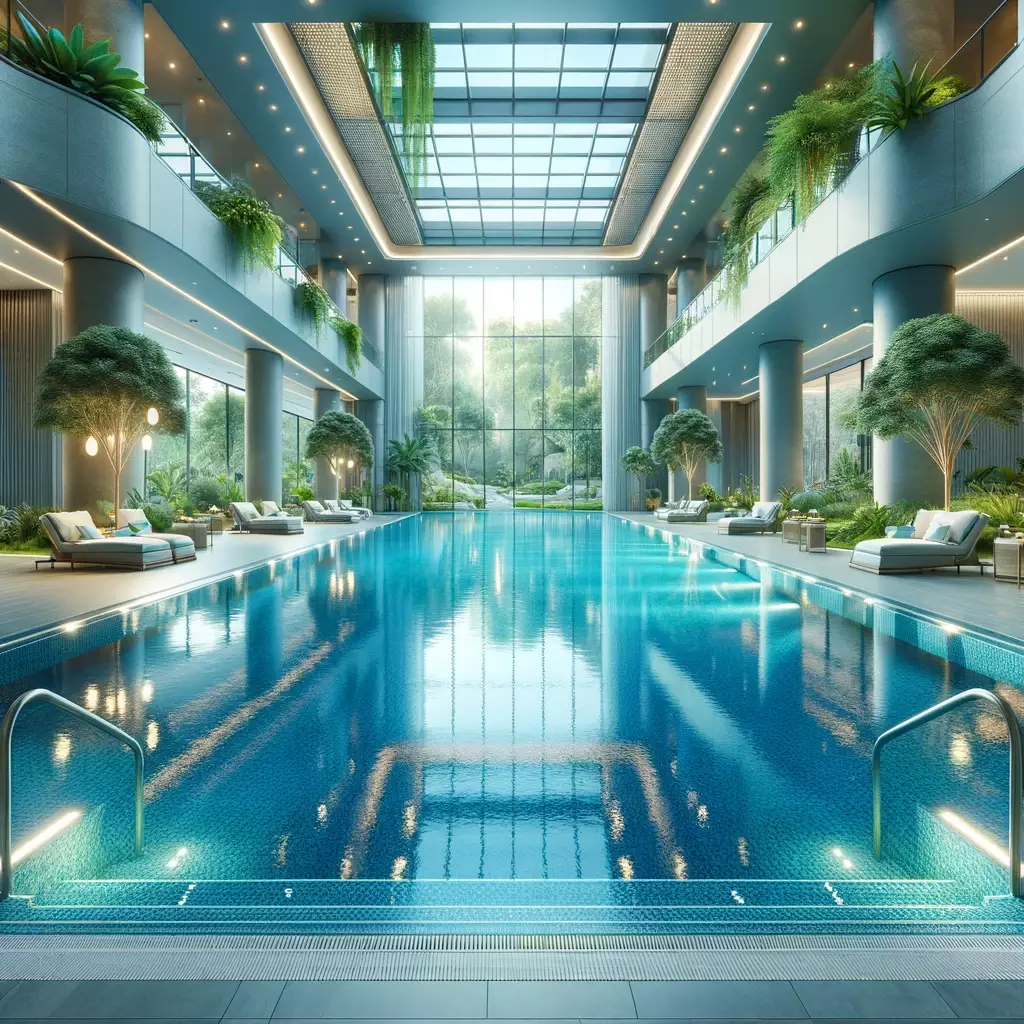Algal growth in swimming pools is a common phenomenon during pool maintenance. Many people believe that indoor pools are less prone to algal problems than outdoor pools due to stricter environmental controls. But is this really the case? This article will explore the issue of algae in indoor swimming pools. By analyzing the factors that affect the aquatic environment within the pool, we will discuss effective diagnostics and prevention to ensure the cleanliness of the pool water and the health of swimmers.

Conditions for Algal Growth
Illumination Reasons
Algae need appropriate light to perform photosynthesis. The light in indoor swimming pools should be similar to natural light to provide enough illumination for the growth of algae. Artificial lighting that is too strong or too weak can be detrimental to the growth of algae. Therefore, regulating the proper intensity of light is key to the proliferation of green algae.
Water Temperature Environment
Temperature has a significant impact on the growth and reproduction of algae. Generally, higher water temperatures (around 20-30°C) are more conducive to the growth of algae. If the water temperature in an indoor swimming pool is maintained within this range, algae will proliferate. Adjusting the temperature of the water can be used as a means of algae control.
Nutrients
The nutrients in pool water come from dust in the air, organic matter such as skin flakes and sweat brought in by swimmers, and by-products of chemical agents used in the pool. This supply of nutrients is essential for the growth and reproduction of algae. Therefore, controlling the nutrients in the water, such as regular cleaning and reducing the input of external organic compounds, can effectively suppress the nutrients in the water.
Diagnosis of Algal Problems in Indoor Swimming Pools
Early Signs of Algal Growth
Turbidity in water: The water begins to show slight green or yellow coloration, which may be a sign of the initial growth of algae.
Slippery pool walls: A very sticky and slippery sensation on the walls and steps of the swimming pool is likely due to the biofilm created by algae.
Odor appearance: If there is a slight rotting sensation and fishy smell in the water, it should be considered that it is caused by the decomposition of algae.
Pigment deposition: Green or brown pigment deposits may appear in the corners of the pool or in areas with poor water circulation.
Floating debris on the water surface: Look for small clumps or thin films formed by the accumulation of algae on the water surface.
Filter condition: Blockage of the filter and increased frequency of cleaning indicate that the filter is retaining more algae.
Prevention Measures
Control light exposure: Reduce the lighting inside the swimming pool, especially at night.
Adjust the strength of the light: Use an adjustable lighting system to meet the actual needs of the swimming pool and adjust the brightness of the light in a timely manner.
Choose the right wavelength: Avoid using light waves that stimulate the growth of algae.
Water temperature adjustment: Maintain the temperature of the swimming pool to prevent the proliferation of algae. This usually means lowering the temperature of the water.
Cleaning and maintenance: Strengthen the hygiene of the swimming pool and regularly clean the water and the walls of the pool.
Avoid pollution from swimming: It is recommended that swimmers shower before entering the pool to reduce the introduction of organic matter such as dandruff and fats.
Pay attention to the use of chemical agents: Use sterilizers and other chemical substances appropriately to prevent nutrient accumulation due to overuse.
From the above analysis, we believe that algal pollution can also occur in indoor swimming pools. Therefore, comprehensive prevention measures must be taken to prevent algae from harming our bodies. Let us work together to make the indoor swimming pool a continuously clean and safe place for leisure.

 Instant
Quote
Instant
Quote Email
Us
Email
Us